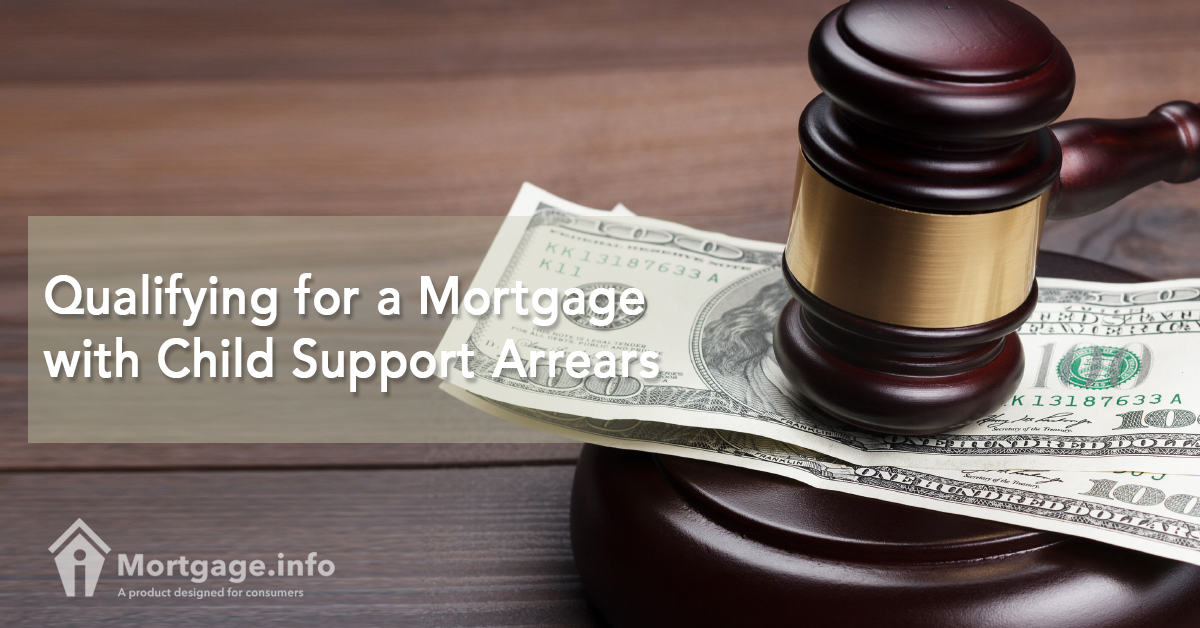Child support arrears can affect your loan application, but not always in a negative way. How you handle the arrears play a vital role in your ability to secure financing. As is the case with any other debt or even income, the lender looks at the whole picture. They don’t focus on one aspect of your loan application. Instead, they look at how everything comes together. This way some things can make you a risk, while others decrease that risk. If the good outweighs the bad, you have a loan. Because of this, there are no cut and dry answers regarding back child support.
Child Support Arrears is Derogatory Credit
As much as you might not think it, child support arrears are derogatory credit; especially if it gets to the point of becoming a collection or judgment. Lenders don’t like to take on new borrowers who have a history of defaulting on their debts. Depending on the amount of the back child support and the age of the debt, it could hurt your chances of loan approval.
How You Handle Back Child Support Matters
A large factor in whether back child support affects your ability to secure a loan is how you handle it. If you just let it go and hope the lender will overlook it, your chances are not good. On the other hand, if you show you actively tried to rectify the situation, you may be eligible for a loan. Showing you are actively taking care of the debt requires:
- A legal contract showing the repayment plan
- Proof that you make the payments with canceled checks and/or bank statements showing the payments
You cannot assume a lender will accept an informal agreement between you and your child’s other parent, though. You have to make it official by going through the court system. If you pay the child support without any legal contracts, there is no way for the lender to determine their validity. Even worse, if you make the payments in cash, the lender cannot verify the payments came from you.
As with anything else pertaining to mortgage qualifications, you must have a paper trail. Because child support arrears is often a derogatory credit item or even a lien on property you own, the lender needs official proof of a payment arrangement.
The Payments Affect Your Debt Ratio
If you have a payment arrangement in place, be prepared for the lender to include the payments in your debt ratio. Even though it may not be on your credit report, the lender must include it as a qualified debt. This is in accordance with the Ability to Repay Rules. The amount the lender uses to calculate the debt ratio depends on the court-mandated amount you must pay. If you pay more, the lender does not count the excess towards your debt ratio.
However, if you have a voluntary agreement and your child support is not behind, a lender does not have to include it in the calculation. In fact, you don’t have to disclose the fact that you pay it as long as you are not behind. Any derogatory payments that trigger a collection or judgment instantly become the lender’s business, though.
Taking Care of Back Child Support Without an Agreement
If you don’t have an official arrangement to pay your child support arrears, you may have to pay the amount you owe in full prior to securing a loan. Certain loan programs, such as the VA and FHA programs, require payment in full if there is no payment arrangement. This can put a damper on your ability to qualify for a loan, especially if you owe large amounts of money.
If you paid a portion of the back child support already, you must provide the lender with proof of the payment. Keep in mind, it must be official proof. Again, you cannot pay in cash or not have a paper trail. The lender needs to see the funds leaving your account and going to the recipient with a canceled check. This shows the lender who you paid; the amount paid; and the date you paid it. It is up to the lender to decide what to do about the remaining balance on your back child support.
Watch Your Debt Ratio
The largest hurdle with child support arrears is figuring the payment into your debt ratio. Typically, child support does not count against you. If there is an official agreement, though, the lender must include it. This is especially true if it reports on your credit report. It is now a derogatory debt, which most lenders cannot accept until the debt is paid off. Since you must include the child support payment in your debt ratio, watch your other debts. If your child support arrears are too much to pay off at once, try paying off other debts. This will decrease your debt ratio to make room for the child support. In most cases, you cannot exceed a debt ratio of 43% unless you secure funding with a private lender who offers subprime loans.
Child support arrears do not have to be the straw that breaks the camel’s back. You can secure funding if you owe back child support. The key is that you show you are taking responsibility for the debt and paying it back. If you ignore the debt or don’t obtain an official agreement to get it paid, you may not secure funding. On the other hand, if you make good on your debt and make your payments on time, many lenders can offer you a loan.
Keep a careful paper trail of anything you do pertaining to the child support in order to have the best chance of approval. The lender will need to verify every move you make regarding the support to ensure that your child’s needs are cared for before they provide you with more funding to purchase or refinance a home.

